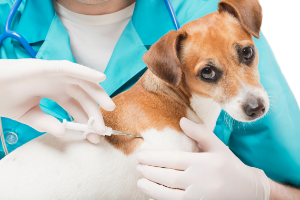It’s no secret that there are fewer things than spells of warmer weather that put a giant smile on our faces here in the UK. The clouds scatter, the rain stops, and the sun lights up the green fields of the countryside. We’ll take any chance to get outside, and so will our pets! Our dogs love to walk with us, and even our kitties want to spend more time exploring (or napping) outdoors. Don’t forget that it can get TOO warm for our pets in the summertime! Today we’re going to share our top reminders for pet parents to keep in mind when the sun comes out.
Bring water for everyone:
When you’re outside in the warmer weather walking, hiking, or playing in the fields with your dogs – make sure to bring water for your pups! Access to water in warm weather helps dogs maintain a normal body temperature. Collapsible rubber reusable bowls are a great way to pack light and keep your pups hydrated. These are widely available on sites such as Amazon.
Shade is everyone’s friend:
When it’s truly warm out, providing a break for your dogs in the shade is another easy way to give their internal body temperature a chance to normalize. Dogs don’t sweat like people do – so giving them shade and a chance to pant helps dissipate heat. This is an excellent opportunity to offer rest and water.
Top tip: You don’t have to bring an umbrella if you’re packing light. Shade under any tree or wooded area is usually plenty.
Sunscreen isn’t just for humans:
For dogs with areas of thin to minimal hair coat, you may want to consider doggy safe sunscreen. It’s not uncommon for dogs with little fur on their tummies/underside to get a sunburn! This is especially true for those who like to sleep on their backs in the sun. Common breeds affected include Staffordshire terriers, terrier crosses, dachshunds, etc. as these breeds often have little to no fur on their undersides. Haired areas are typically protected enough and do not require sunscreen.
Pet sunscreens should not include zinc oxide or PABA (para-aminobenzoic acid) as these are toxic if ingested. They should also be waterproof, just like human sunscreens.

Do not leave your doggos in the car!
Even in temperatures that don’t seem warm to us, temperatures inside a locked car can rise exponentially in as little as 15 minutes. When the outside temperature is a moderate 20°C, the inside of a car parked in the sun can quickly reach 35°C and higher.
It’s common for people to feel that temperatures of 17-20°C are mild, but cars in direct sun in these temps can easily get too hot for pets. Each year there are several deaths as a result of dogs left in hot cars, and these are 100% preventable.
Surfaces (especially black paved ones) can burn dogs’ foot pads:
Paved surfaces in direct sunlight can also get hot quickly! Keep this in mind as pets can easily burn their paw pads on these surfaces. A way to check the temperature is to put the back of your hand on the surface. If it’s too hot for you, it’s too hot for your pup.
If your pup burns their paw pads and you notice the pads tearing, blistering, or peeling – contact your vet as your dog may need cleaning, bandaging and medications to help prevent infection and treat discomfort. Raw paw pads are painful!
Parasites are on the prowl:
The only group that loves the warm weather more than us are the BUGS. Parasites are particularly happy in moderate temperatures, meaning that regular parasite prevention is particularly important in the spring and summer. Fleas and ticks, while they are present year round in the UK, definitely prefer warmer milder temperatures. With our dogs spending lots of time outside with us in the warmer weather, don’t forget to stay diligent on your flea/tick treatments each month.
Because people and pets are out more, this also means the spread of intestinal parasites like roundworms and giardia are more frequent. Anywhere that dogs poo has the potential to spread these parasites.

Toxicities/poisoning are more likely:
Since the number of people out and about is higher when the weather is good, it also means that unfortunately the amount of garbage, particularly food left out at parks and other public places is greater. Despite most people doing their best to clean up after themselves, there is a higher possibility of waste to be left behind.
Keeping a close eye on your dog whether they are on or off the lead is the best way to avoid them eating rubbish or leftover food that didn’t make it to the bin. Don’t forget, it’s not just rubbish/food potentially causing an intestinal obstruction or toxicity, but certain plants can as well.
Microchip microchip microchip:
While we are out and about with our pups in warmer weather, it also means more opportunities for our pets to get lost. Make sure your pets are microchipped AND the chip is registered with up-to-date information, so that if something DOES happen, it’s significantly more likely for them to be returned to you!
Collars with tags are definitely helpful, but dogs and cats can very easily slip out of their collars. Collars can also easily be removed. Microchips are a permanent, easy, and safe way to link your pet to you.
New to VetBox? Check out how we can keep your pets safe over the summer and beyond with our monthly subscriptions.
Dr. Kirsten Ronngren, DVM MRCVS